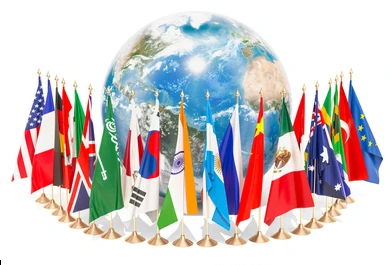International Cooperation – Collaborating for Shared Prosperity

In a highly interconnected world, international cooperation is more than a diplomatic ideal—it is a practical necessity. From climate change and pandemics to trade and technology, global challenges demand collective solutions. When nations collaborate, they can achieve outcomes that no country can accomplish alone.

International cooperation occurs through various channels—multilateral organizations like the United Nations, regional blocs like the European Union, and bilateral agreements between countries. These mechanisms enable countries to set global standards, coordinate responses, and share resources and expertise.

Global health is a prime example. The COVID-19 pandemic underscored the need for coordinated action. Through organizations like the World Health Organization, countries shared research, distributed vaccines, and implemented joint health strategies. The pandemic revealed both the strengths and gaps in global solidarity.

Climate change is another area requiring cooperation. Agreements such as the Paris Accord reflect global commitment to reducing carbon emissions and promoting sustainable development. Shared technology, climate financing, and cross-border environmental initiatives are crucial to meeting global goals.

Economic cooperation enhances trade, investment, and development. Organizations like the World Trade Organization (WTO) and International Monetary Fund (IMF) facilitate dialogue, resolve disputes, and provide financial support. International aid and development programs help poorer nations build infrastructure, improve healthcare, and enhance education.

Technology and research also benefit from international collaboration. Scientists across borders work together on projects from space exploration to cancer research. Sharing knowledge accelerates innovation and widens access to scientific progress.

Despite its importance, international cooperation faces challenges—nationalism, protectionism, and geopolitical tensions can hinder progress. Trust, mutual respect, and strong leadership are essential to overcome these barriers. Transparent dialogue and inclusive policymaking help build consensus and address inequalities.
Ultimately, international cooperation fosters peace, prosperity, and progress. By working together, countries can build a more stable, sustainable, and equitable world.
